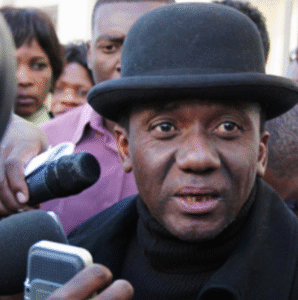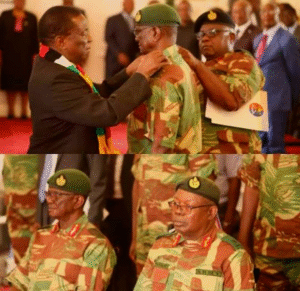JOB SIKHALA’S BATTLE FOR JUSTICE AND DEMOCRACY AT THE UN GENEVA SUMMIT

In an impassioned address to the UN 16th Geneva Summit for Human Rights and Democracy, Job Sikhala, a former Zimbabwean political prisoner and opposition member, detailed the harrowing experiences of his incarceration and the broader suppression of democratic freedoms in Zimbabwe. Sikhala, who has been arrested 68 times in his nearly three-decade-long political career, remains a prominent lawyer and was an outspoken opposition member of Parliament prior to his latest arrest on June 14, 2022.
Sikhala’s ordeal began when he chose to represent the family of Moreblessing Ali, a single mother and opposition political activist who was brutally murdered. Ali’s dismembered body was eventually discovered decomposed in a deep well. For his involvement in her case, Sikhala endured 595 days of pre-trial detention in the infamous Chikurubi Maximum Security Prison, a period marked by severe human rights abuses including solitary confinement, denial of food, medical care, and access to legal representation.
Throughout his incarceration, Sikhala was subjected to inhumane treatment, such as being chained to a hospital bed during severe illness and facing multiple trials under questionable legal pretenses. The regime’s tactics were clear: to silence a vocal critic ahead of the 2023 elections. Sikhala’s arrest was a strategic move by President Mnangagwa’s government to curb his political influence, exemplifying the systemic assault on dissent within the country.
The plight of Sikhala’s family and supporters further underscores the regime’s brutal crackdown on opposition voices. His wife, Ellen, was arrested under a dubious traffic offense to block her from assisting him, and his legal practice was systematically dismantled. Additionally, six University of Zimbabwe students faced arrest merely for advocating for Sikhala’s release, highlighting the government’s disregard for academic freedom and legal rights.
During his address, Sikhala did not just share his personal struggles but painted a grim picture of the reality facing many Zimbabweans. He described a nation where torture, brutality, and economic destruction are commonplace as the government seeks to stifle opposition and maintain power at all costs. This systemic oppression has not only silenced the political opposition but has also devastated civil liberties, with new laws threatening to further constrict the space for free speech and peaceful assembly.
Furthermore, Sikhala’s speech touched on the broader implications of governmental overreach affecting education and public health, with many young Zimbabweans facing bleak futures due to inaccessible education and rising drug addiction rates. He also highlighted the impending humanitarian crisis due to climate-induced droughts affecting Southern Africa, stressing the need for equitable distribution of international aid in Zimbabwe.
Sikhala’s address at the Geneva Summit was not merely a recount of personal suffering but a call to action for the international community. He urged global solidarity against the persecution faced by human rights advocates worldwide and advocated for international support for the National Democratic Working Group (NDWG), a coalition aiming to restore democracy in Zimbabwe.
By sharing his story, Sikhala not only seeks justice for himself and his compatriots but also aims to inspire a collective response against tyranny. His concluding prayer was for divine blessings on all attendees, reflecting his enduring hope and faith in the power of united global efforts to champion human rights and democracy. The international community now faces the crucial task of responding to these cries for help, as silence and inaction will only serve to embolden oppressors and prolong the suffering of the Zimbabwean people.




